
World Elder Abuse Awareness Day 2024:
How Can I Get Involved, and How Is NASW Working to Address Elder Abuse?
Chris Herman, MSW, LICSW, Senior Practice Associate, Aging
June 2024
Introduction
Each year on June 15, NASW joins advocates around the globe in observing World Elder Abuse Awareness Day (WEAAD). This observance centers on the theme Building Strong Support for Elders and has three goals:
- increasing awareness about elder abuse (which can include neglect, financial abuse or exploitation, and physical, sexual, or emotional–psychological abuse)
- fostering action by individuals, organizations, and communities to identify, prevent, and address elder abuse
- reaffirming our society’s commitment to the principle of justice for all—that we should all be able to live free from abuse at every age
This publication outlines elder abuse–focused activities throughout and beyond the month of June, describes NASW’s recent activities to address elder abuse, and provides a robust resource list you can use throughout the year. (Visit NASW’s Tips and Tools for WEAAD 2023 for information every social worker needs to know about elder abuse.)
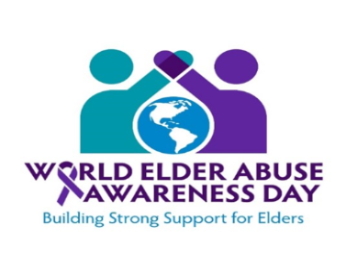
Getting Involved in WEAAD
WEAAD is led by the National Center on Elder Abuse (NCEA), which is funded by the Administration for Community Living (ACL) and housed at the Keck School of Medicine of the University of Southern California (USC). As a social worker, you are well positioned to help your colleagues and people in your personal life understand elder abuse. The NCEA–ACL WEAAD microsite includes information about multiple ways to get involved in the 2024 observance:
- Virtual Walk for WEAAD (May 1–June 15): Help build an elder justice movement through movement. Unlike many walks and runs, this NCEA activity raises awareness—not money—and occurs over a month and a half rather than one day or weekend. Form a virtual team with your colleagues, friends, and family or simply track your own walking.
- National Weekend of Prayer and Action for Elder Justice (June 7–9; Spanish version): Spiritual communities are important sources of support for many people and can play a pivotal role in increasing awareness of elder abuse. NCEA and Safe Havens Interfaith Partnership Against Domestic Violence and Elder Abuse have developed multiple resources addressing the intersection of elder abuse and spirituality. Use these resources within your own spiritual community or in outreach to local faith communities.
- Webinar—Decision-making in Later Life: Navigating Risk and Optimizing Safety (June 11, 1:00–2:15 p.m. EDT): Presented by an interdisciplinary panel, including NASW staff, this free program will address how older adults and elder justice professionals navigate the assessment, management, mitigation, and acceptance of risk that may expose older adults to abuse or harm. Participate in the live webinar (registration required) or access the recording, slides, and related materials on demand after the live event. Continuing education (CE) credits are not available for either live or on-demand participation.
- Campaign—Finish the Sentence for WEAAD (anytime in May or June): Participate in this social media campaign to encourage everyone, regardless of age, to help prevent and address elder abuse. NCEA templates are available in English, Spanish, Chinese, and Korean. Visit the WEAAD social media page for other outreach ideas and materials, including a social media guide in Spanish.
- Other activities (June and throughout the year): Find in-person and virtual WEAAD events and submit your own event for posting on the WEAAD microsite. Consider NCEA’s ideas for taking action in your own organization or community, whether for WEAAD or any time of year.
- Tools and tips (June and throughout the year): Download NCEA outreach materials, such as guides, bookmarks, slide templates, fact sheets, and sample letters to the editor and press releases—some specific to WEAAD and some suitable for use throughout the year. Many materials are available in both English and Spanish, and some are available in Chinese.
In addition to NCEA’s WEAAD offerings, other activities focused on elder abuse (none of which offer social work CE credits) are taking place in June:
- Webcast—Elder Justice Coordinating Council (EJCC) semiannual virtual meeting (June 12, 10 a.m.–12 p.m. EDT): The mission of the EJCC is to improve coordination among federal departments, agencies, and entities administering programs related to elder abuse, neglect, or financial exploitation. The council was created thanks to a mandate in the Elder Justice Act of 2009 (S. 795), which was enacted as part of the Patient Protection and Affordable Care Act (124 Stat. 119, 2010). This semiannual EJCC meeting will commemorate WEAAD by reviewing and celebrating the council’s accomplishments since the 2014 adoption of its Eight Recommendations for Increased Federal Involvement in Elder Abuse, Neglect, and Exploitation, by recognizing federal leaders who have been instrumental in advancing elder justice knowledge and policies, and by previewing EJCC’s directions for the coming decade. Register to observe the live meeting or visit the EJCC meeting page to access materials after the live event.
- Webinar—Virtual Briefing for WEAAD (June 14, 11 a.m.–12 p.m. EDT): Hosted by the Elder Justice Coalition, of which NASW is a member, this free program will focus on funding for APS and the long-term care ombudsman program and Elder Justice Act reauthorization efforts. Register for the webinar.
- Webinar—Current State of Knowledge Regarding Fraud and Abuse Committed by Guardians or Conservators (June 25, 12–1 p.m. EDT): This free program, hosted by the DOJ’s Elder Justice Initiative, will summarize the findings of a recent DOJ report, including legal, policy, and practice considerations and recommendations. Register for the live program or access the recording on the EJI website.
- Medicare Fraud Prevention Week (June 3–9): Although this week is not officially affiliated with WEAAD, it relates closely to elder abuse and occurs during the month of June. Established in 2022 and led by the ACL and its Senior Medicare Patrol (SMP) Resource Center, this observance increases awareness of the actions we all can take to prevent Medicare fraud, errors, and abuse. Find Medicare Fraud Prevention Week materials for beneficiaries, caregivers, families, health care providers, professionals, and communities on the SMP and ACL websites. Visit the SMP website to find your SMP office (available in all 50 states and the District of Columbia, Guam, Puerto Rico, and the U.S. Virgin Islands), read SMP’s consumer alerts, subscribe to SMP’s biweekly newsletter, and learn how the program helps beneficiaries prevent, detect, and report Medicare fraud.
Moreover, other programs related to elder abuse are upcoming or available on demand:
- National virtual symposium—Person-Centered Approaches in Elder Abuse Multidisciplinary Teams (August 13, 1–3 p.m. EDT): Hosted by the USC Keck School of Medicine, this free interactive virtual symposium will convene elder justice professionals involved in MDTs across the country to discuss the national movement to advance person-centered approaches in elder abuse multidisciplinary teams. Contact USC Keck staff Kimberly Moon for additional information.
- Programs hosted by ACL: Each program is free, and CE credits are not available.
- Webinar—A Strategic Framework for a National Plan on Aging (June 10, 2–3 p.m. EDT): The framework is the first step in developing the National Plan on Aging and was developed through the federal Interagency Coordinating Committee on Healthy Aging and Age-Friendly Communities (ICC), which is led by ACL. This
webinar, hosted by ACL, will describe the strategic framework and the national
plan and how you can get involved.
Register for the live program or access the recording on the ICC website.
- Webcast—Commemorating the 25th Anniversary of Olmstead v. L.C. (June 20, 2–4 p.m.): One-quarter of a century ago, the Supreme Court ruled that unjustified segregation of people with disabilities is a form of unlawful discrimination under the Americans with Disabilities Act and that states are required to ensure that people with disabilities can receive services in the most integrated setting appropriate to their needs. Hosted by ACL in collaboration with the DOJ’s Civil Rights Division and the U.S. Department of Health and Human Services Administration’s Office for Civil Rights, this event will feature people with disabilities, federal leaders, and national experts discussing the impact of Olmstead, ongoing barriers to community living and true inclusion, and actions needed to realize the promise of this landmark decision. Register for the live program or access the recording on the ACL website.
- Webinars hosted by the SAGE National Resource Center on LGBTQ+ Aging: Registration is required for live programs, and recordings of each webinar will be available on demand.
- Retirement and Long-Term Financial Planning (July 16, 3:00–4:00 p.m. EDT): Provided in collaboration with the Consumer Financial Protection Bureau (CFPB), the Federal Trade Commission (FTC), and the Securities and Exchange Commission (SEC), this program will address how to protect resources from scammers, steps to becoming a financial caregiver, and information on investing and avoiding investment fraud.
- End-of-Life Planning and Your Consumer Rights (September 17, 3:00–4:00 p.m. EDT): Provided in collaboration with CFPB and the FTC, this program will address consumer rights in relation to funeral planning, nursing home debt collection, and managing finances after the death of a spouse or partner.
- Reverse Mortgages & Housing Related Scams (recording of May 14 program): Provided in collaboration with CFPB and FTC, this program described how reverse mortgages work and addressed how to spot, avoid, and report scams related to home repairs and rental listings.
- Webinars and podcasts hosted by the ACL-funded Adult Protective Services (APS) Technical Assistance Resource Center:
- Recent topics addressed in on-demand webinars include the National Adult Maltreatment Reporting System, understanding and partnering with the Aging Network, implicit bias, and a three-part series on scams and fraud.
- Recent topics address in podcasts include vicarious trauma, self-neglect, the Native American Elder Justice Initiative (NAEJI), the Department of Justice (DOJ) Elder Justice Initiative and Multidisciplinary Team (MDT) Resource Center, and communication with reporters of suspected elder abuse.
- On-demand webinars hosted by NCEA: Recent offerings include Trauma-Informed Practices to Address Abuse and Build Resilience (June 2023) and Person-Centered Approaches to Elder Abuse (January 2023).
- Podcasts hosted by NCEA: Recent programs include The OGs of Elder Justice series, one of which features NASW Social Work Pioneer® and Ohio Chapter member Georgia Anetzberger (December 2023), The Anatomy of a Guardianship (June 2023), and Person-Centered Decision-Making: Options Less Restrictive Than Guardianship (August 2022).
- Identity Theft, Scams, & Older Adults: This webinar was hosted by CFPB in June 2023 and is available on demand.
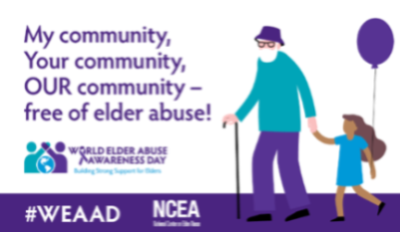
NASW Activities to Prevent and Address Elder Abuse
Elder abuse prevention and response have remained high priorities for NASW since the publication of the association’s Tips & Tools for WEAAD 2023. A list of selected recent and upcoming NASW activities in this area follows:
- Collaboration with NCEA: As a long-standing member of the NCEA advisory board, NASW provides feedback on and helps disseminate NCEA’s work throughout the year. For example, NASW provided input on an infographic entitled strong>What Social Work Students Need to Know About Elder Abuse, published by NCEA in March. Moreover, NCEA and NASW are collaborating on two upcoming programs:
- Decision-making in Later Life: Navigating Risk and Optimizing Safety (June 11, 1:00–2:15 p.m. EDT, and on demand): Please refer to the previous section of NCEA’s WEAAD resources for details.
- Dignity of Risk: An Integral Component of Person-Centered Work with Older Adults (June 19, 11:30 a.m.–2:30 p.m. EDT): This interactive, in-person workshop will be offered by staff of NASW, NCEA, and the USC Center for Elder Justice as a preconference to the upcoming NASW national conference. Visit the NASW national conference website, scroll to June 19, and click on “preconference workshops” to read the workshop description. This workshop, which is worth three social work CE credits and open only to NASW conference registrants, will not be available on demand. (Additionally, the conference includes a breakout session, Restorative Steps: An Alternative Approach to Elder Abuse, presented by New York City Chapter member Rachael Domanico and fellow social worker Meredith Levine on June 22.)
- National Collaboratory to Address Elder Mistreatment (NCAEM): In early June, NASW staff participated in a discussion panel at the annual convening of the NCAEM Mentorship Program. NCAEM is an eight-year-old initiative led by the Education Development Center in partnership with USC Keck School of Medicine, University of Texas Health Science Center at Houston, and Weill Cornell Medical College and funded by the John A. Hartford Foundation, the Gordon and Betty Moore Foundation, and the Health Foundation for Western and Central New York. The one-year mentorship program supports clinicians, service providers, researchers, policymakers, and advocates from multiple disciplines who are working to address or prevent elder mistreatment. During the early June convening, the mentees presented summaries of their yearlong projects and received feedback from mentors, federal partners, and expert discussants. NASW staff served on a discussant panel addressing workforce education and support related to elder abuse. (The 2023–2024 mentee cohort included five social workers, two of whom are NASW members: Jaime Halaszynski [Pennsylvania Chapter] and Amy Restorick Roberts [Ohio Chapter]. Moreover, New Jersey Chapter member Alyssa Elman has served as a mentor since the program’s inception in 2022. NASW will publicize information about NCAEM’s next call for applications to participate in the mentorship program.)
- USC Judith D. Tamkin International Symposium on Elder Abuse: NASW staff was among the individuals invited to present at this symposium in February, addressing the topic Leveraging Federal Policy to Support Caregiving and Mitigate Elder Mistreatment. Three NASW members were also featured in the symposium:
- NASW Social Work Pioneer® and Maryland Chapter member Sandra Edmonds Crewe addressed Protecting Our Elders Through Supporting Family Caregivers.
- Michigan Chapter member Joy Swanson Ernst copresented a poster entitled APS Administrative Data Initiative (AADI): A New National Network.
- Georgia Anetzberger copresented an annual award in her own name to an individual who has contributed outstanding service to the field of elder abuse.
- National Center for State and Tribal Elder Justice Coalitions: NASW recently completed its first year as a member of the advisory committee for the center. Funded by the DOJ’s Office for Victims of Crime and launched in 2023, the center assists with building broad-based, multidisciplinary coalitions to identify and address elder justice issues specific to states and Tribal communities. The center currently provides training, technical assistance, and resources to develop or strengthen Tribal and state coalitions through subgrants to one federally recognized Native American Tribe and seven state-based not-for-profit organizations. Furthermore, the center promotes elder justice nationwide in collaboration with the National Network of State Elder Justice Coalitions, which was founded by five social workers (including Anetzberger, New York City Chapter member and NASW Social Work Pioneer® Risa
Breckman
, and New York State Chapter member Paul Caccamise) in 2017. As an advisory committee member, NASW has contributed to various aspects of the center’s work, including website development and support for the subgrant process.
- Monitoring the work of the EJCC: In April, NASW submitted comments to ACL regarding the council’s priorities for the coming decade. The association’s comments highlighted, among other topics, the social work role in elder abuse prevention and response, the need to focus on underserved populations and on elder abuse in specific settings, and the need to establish an Advisory Board on Elder Abuse, Neglect, and Exploitation, composed of stakeholders from the field, as specified in the Elder Justice Act. NASW was one of a limited number of organizations invited to attend the June 12 EJCC meeting in person at the DOJ building in Washington, DC.
- Elder Justice Act advocacy: In addition to authorizing the EJCC, the Elder Justice Act has channeled federal funds to APS programs and authorized (among other activities) pilot programs for innovative interventions, establishment and maintenance of the National Adult Maltreatment Reporting System, and development and updating of voluntary guidelines for APS programs. NASW has consistently advocated with the Leadership Council of Aging Organizations (LCAO) to increase funding for the Elder Justice Act. LCAO has also advocated for reauthorization of the law; although reauthorization bills (S. 1198/H.R. 2718) have been reintroduced in Congress, they have not gained much traction.
- Older Americans Act (OAA) advocacy: The OAA governs multiple programs that mitigate social isolation and help to prevent and address elder abuse. These programs, many of which are staffed or led by social workers, include case management, elder abuse prevention and intervention, family caregiver supports, long-term care ombudsman, nutrition, and transportation. NASW has engaged in OAA advocacy in three ways this past year:
- The association submitted comments last summer on a proposed rule to amend federal regulations for OAA implementation; some of the association’s changes were incorporated in the OAA final rule.
- NASW has consistently advocated with LCAO to increase federal funding for the OAA and other programs that support all of us as we age.
- The association is collaborating with other members of LCAO to keep abreast of and inform the OAA reauthorization process on Capitol Hill. (The OAA has been reauthorized multiple times since it became law in 1965. The Supporting Older Americans Act of 2020 [Pub. L. 116–131], which NASW endorsed, will expire on September 30, 2024.) If an opportunity emerges to mobilize social workers in support of OAA reauthorization, NASW will post an advocacy alert online and disseminate it to the advocacy alert distribution list.
- Improving nursing home quality: The Nursing Home Reform Coalition consists of consumer and workforce advocates, convened by the National Consumer Voice for Quality Long-Term Care, who advocate to realize the goals of the Biden Administration’s initiative to improve the quality of nursing home care. As a member of the coalition, NASW has worked to improve nursing home staffing, transparency, and accountability. These topics will be addressed in a forthcoming Tips and Tools publication.
- Revision of NASW Standards for Social Work Services in Long-Term Care Facilities (2003): A volunteer task force of NASW members is working with staff to update these standards. The revised version will address the use of long-term services and supports by people across the lifespan in both facility and home- and community-based settings and will include content about elder abuse. NASW will solicit member comments on the draft standards before publication.
- On Aging 2024: Staff served as a peer reviewer for the American Society on Aging’s annual conference, which included significant content on elder abuse, elder justice, and ageism.
Visit the symposium website to read the program and posters and download presentation slides.
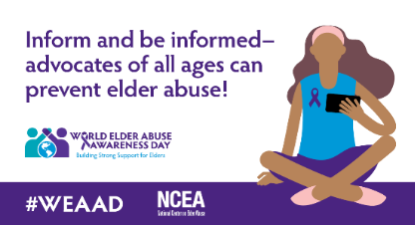
What resources are available to help social workers address and prevent elder abuse throughout the year?
As noted previously, many resources on the NCEA–ACL WEAAD microsite and the NCEA website can be used throughout the year. In addition to those previously described in this publication, NCEA offers the following free materials:
- Support & Tools for Elder Abuse Prevention (STEAP), a partnership of NCEA and USAging)—free, ready-to-use materials (including a brochure, fact sheets, presentation slides, and outreach guides, all of which can be customized with your organization’s name, logo, and contact information) to engage and educate your community about the role each of us can play in preventing and addressing elder abuse
- Reframing Elder Abuse resources—including a reframing video lecture training and Talking Elder Abuse Toolkit (both developed in collaboration with and based on research conducted by the FrameWorks Institute), Tips and Tools to Reframe the Conversation on Aging and Elder Abuse, on-demand webinars, sample social media posts, and frequently asked questions
- NCEA Blog—including recent posts on topics such as Building Protective Networks for LGBTQ+ Elders and Domestic Violence Across the Lifespan
- NCEA publications—downloadable publications (many available in multiple languages) addressing the following topics: APS, adults with disabilities, cultural communities, dementia, families and caregivers, guardianship–conservatorship, health care, intervention strategies, law and legislation, public policy, research, types of elder abuse, tips and tools, nursing home–long-term care abuse, and prevention, education, and outreach
- Research, statistics, and data—addressing topics such as demographics, prevalence, risk factors and protective factors, detection and screening instruments, intersectionality, and interdisciplinary and international responses
- Links to educational and training materials on USC’s Training Resources on Elder Abuse (TREA) database
- NCEA Elder Abuse Listserv and NCEA Connection electronic newsletter

NASW RESOURCES ON ELDER ABUSE AND ELDER JUSTICE
Practice & Policy Publications:
On-Demand Webinars:
NASW Press Books:
Free, One-on-One Phone Consultations:*
- Ethics consultations with staff from the Office of Ethics and Professional Review for NASW members who have ethical concerns about possible or actual elder abuse, neglect, or exploitation
- Legal consultations with staff from the Office of General Counsel for social workers who have legal concerns about possible or actual elder abuse, neglect, or exploitation
* These consultations do not constitute specific practice or legal advice and are available only to individuals with active NASW memberships.
Related NASW Resources:*
- Aging practice webpage—information hub for practice tools, policy and news updates, and other resources pertinent to social work with older adults
- Chapters—offerings may include continuing education and committees, special interest groups, or task forces focused on social work with older adults
- Code of Ethics—available online in English and Spanish
- Specialty Practice Sections—optional benefit for NASW members; sections include Aging, Social & Economic Justice & Peace, and Social Work & the Courts
* For a more comprehensive list of NASW’s resources related to social work with older adults, please visit another publication in the Tips and Tools for Social Workers series, Older Americans Month 2024: What Is NASW Doing to Support Social Work with Older Adults?
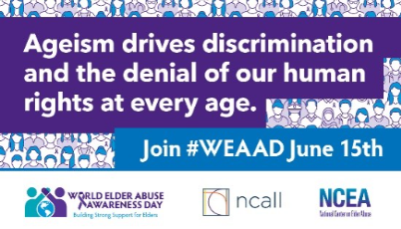
FEDERAL AND FEDERALLY SUPPORTED ENTITIES AND RESOURCES FOR ELDER JUSTICE
- Administration for Community Living (ACL)—includes the Administration on Aging (AoA) and an Elder Justice Hub; program and policy areas include Prevention of Elder Abuse, Neglect, and Exploitation and Protecting Rights and Preventing Abuse. ACL supports the following centers and programs that also work on elder abuse:
- Adult Protective Services Technical Assistance Resource Center (APSTARC)
- Developing a Better Understanding of a Unique Multidisciplinary Team (MDT) Model: The Elder Abuse Forensic Center—grant to the University of Southern California (USC) Center for Elder Justice
- Eldercare Locator—online database and toll-free phone service connecting older adults, families, and service providers to Area Agencies on Aging (AAAs), Aging and Disability Resource Centers (ADRCs), and Title VI Native American programs; managed by USAging
- National Adult Maltreatment Reporting System (NAMRS)
- National Adult Protective Services Training Center (NATC)
- National Aging Resource Consortium for Racial and Ethnic Minority Seniors—includes the Asociación Nacional Pro Personas Mayores (ANPPM), the National Asian Pacific Center on Aging (NAPCA), the National Caucus and Center on Black Aging (NCBA), and the National Indian Council on Aging (NICOA)
- National Center on Elder Abuse (NCEA)—based at the USC Keck School of Medicine
- National Center on Law and Elder Rights (NCLER)—managed by Justice in Aging
- Native American Elder Justice Initiative (NAEJI)—managed by the International Association for Indigenous Aging (IA2)
- National Long-Term Care Ombudsman Resource Center (NORC)—managed by the National Consumer Voice for Quality Long-Term Care
- National Pension Assistance Resource Center (PARC)—managed by the Pension Rights Center
- National Resource Center on LGBTQ+ Aging—managed by SAGE
- National Resource Center on Women and Retirement—managed by the Women's Institute for a Secure Retirement (WISER)
- National Voluntary Consensus Guidelines for State APS Programs; federal regulations governing APS (2024 final rule)
- Older Americans Act federal regulations (2024 final rule)
- Senior Medicare Patrol—helps beneficiaries prevent, detect, and report Medicare fraud;
programs available in the District of Columbia, Guam, Puerto Rico, U.S. Virgin
Islands, and all 50 states
- Federal Trade Commission (FTC)—Pass It On campaign (available in English and Spanish) and consumer.gov; information about scams & identity theft
- U.S. Department of Justice (DOJ)—includes multiple initiatives and resources regarding elder abuse:
- Elder Abuse Guide for Law Enforcement (EAGLE)—developed by the USC Keck School of Medicine
- Elder Abuse Peer Support Community
- Elder Justice Initiative (EJI)
- Elder Justice Network Locator Map
- Elder Justice Roadmap—strategic planning resource developed with the U.S. Department of Health and Human Services (HHS) and stakeholders nationwide; report coauthored by NASW member Risa Breckman
- Multidisciplinary Team Technical Assistance Center (MDT TAC)
- Office for Victims of Crime (OVC)—funded projects include (1) the National Center for State and Tribal Elder Justice Coalitions, operated by Lifespan of Greater Rochester (New York) in consortium with the Center for Elder Abuse Solutions (CEASe) at Weill Cornell Medicine, Minnesota Elder Justice Center (MEJC), Ohio Coalition for Adult Protective Services (OCAPS), and Jacqueline Gray,
PhD, Choctaw/Cherokee descendent Tribal consultant Native American specialist
, (2) the National Elder Abuse MDT Training and Technical Assistance Center, led by CEASe at Weill Cornell Medicine in partnership with Lifespan of Greater Rochester, National Clearinghouse on Abuse in Later Life, and NCEA
- Office on Violence Against Women (OVW)—funded projects include the National Clearinghouse on Abuse in Later Life (NCALL), which provides technical assistance to OVW Abuse in Later Life grantees & houses Abuse in Later Life National Resource Center; NCALL’s
recent offerings include (a)
Sexual Abuse in Later
Life: Believing and Supporting Older Survivors
(2024), (b) Rural Domestic and
Sexual Abuse Program Advocates: Making a Difference in The Lives of Older
Survivors of Abuse
(2023), (c) Abuse
in Later Life on the Radar: Funding a Collaborative Approach for the Support of
Older Survivors
(on-demand webinar materials without CE credit, 2023),
(d) Combating Ageism
Is Combating Abuse
(2021), (e)
World Elder Abuse
Awareness Day 2024: Prioritizing Dignity, Safety, and Wellbeing for Older
Survivors of All Identities
, (f) Collaborating
for Justice for Older African Americans: A Guide for Elder Justice Teams to
Build Equitable Partnerships with Culturally-Specific Organizations
(2023), and (g) recordings, slides, and transcripts of three free webinars related
to the guide (click on “African American Community” on the
publications
page; no CE credit provided)
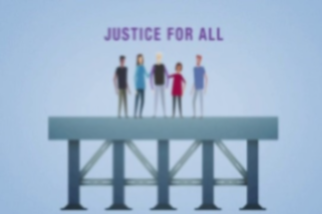
NONGOVERNMENTAL NATIONAL ORGANIZATIONS AND RESOURCES ADDRESSING ELDER ABUSE
By sustaining, enhancing, and creating policies and programs that strengthen social supports in our communities, we can prevent elder abuse—and we can address the problem more quickly and effectively when it does occur. Let's work together to build a just society for all.
